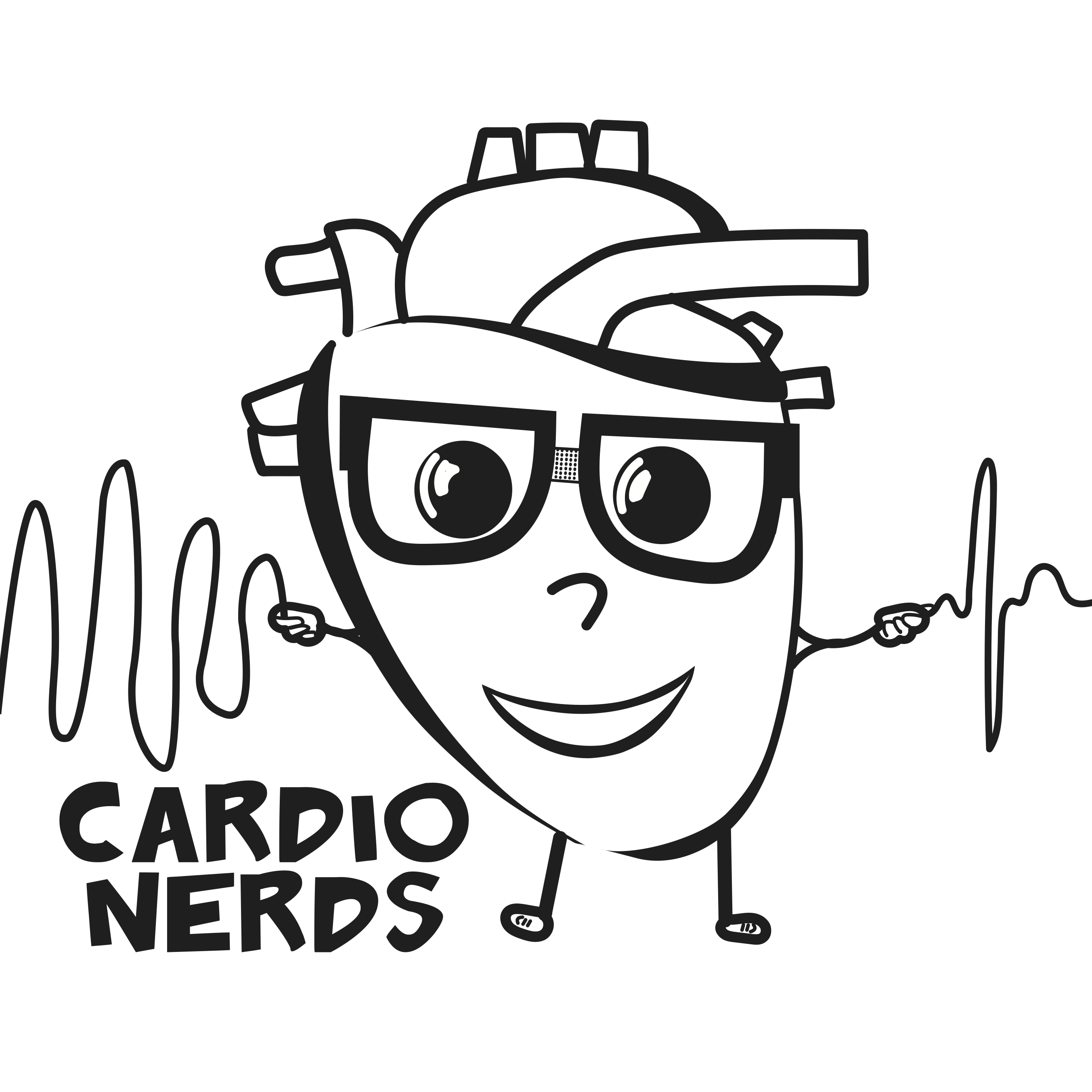

Cardionerds: A Cardiology Podcast
CardioNerds
Welcome to CardioNerds, where we bring you in-depth discussions with leading experts, case reports, and updates on the latest advancements in the world of cardiology. Tune in to expand your knowledge, sharpen your skills, and become a true CardioNerd!
Episodes
Mentioned books

Sep 6, 2024 • 23min
389. Case Report: When “Normal” Cholesterol is Not Normal: Exposing an Unusual Presentation of Familial Hypercholesterolemia – National Lipid Association
Dr. Jelani Grant and Dr. Alexander Razavi, both lipid scholars, along with expert commentator Dr. Archna Bajaj, dive into a compelling case of familial hypercholesterolemia. They discuss how a young woman, despite a family history of severe cholesterol issues, shows only mild LDL-C elevation. The conversation highlights the critical role of genetic testing and family history in diagnosis, as well as the latest advancements in lipid-lowering therapies. This intriguing case illustrates that 'normal' cholesterol readings can sometimes be misleading.

6 snips
Aug 20, 2024 • 12min
388. Ironing out the Data: Iron Deficiency in Heart Failure with Dr. Robert Mentz
Dr. Robert Mentz, Chief of Heart Failure at Duke University and principal investigator of the HEART-FID trial, dives into the complexities of iron deficiency in heart failure. He discusses crucial diagnostic criteria and the surprising prevalence of iron deficiency among heart failure patients. The conversation highlights the significant impact of iron on quality of life, hospitalization rates, and mortality. Mentz also explores treatment options, notably the advantages of intravenous iron therapy over oral supplements, advocating for a more tailored approach to patient management.

Aug 18, 2024 • 44min
387. Cardio-Rheumatology: The Role of Inflammation in Cardiovascular Disease with Dr. Antonio Abbate
Dr. Antonio Abbate, a leading expert in cardio-immunology, sheds light on the crucial link between inflammation and cardiovascular disease. He discusses how chronic low-grade inflammation influences heart health and the role of atherosclerosis as a chronic inflammatory condition. Dr. Abbate emphasizes the significance of inflammatory markers, like C-reactive protein, in assessing cardiovascular risk. The conversation also touches on emerging anti-inflammatory therapies and personalized strategies for managing high-risk patients.

Aug 16, 2024 • 38min
386. Beyond the Boards: Cardiomyopathies with Dr. Steve Ommen
Dr. Steve Ommen, an expert in hypertrophic cardiomyopathy, joins to dive deep into this complex condition. He shares insights on diagnosing restrictive cardiomyopathy and emphasizes the importance of personalized treatment strategies. Discussions include innovative therapies like Mavicamtin, exercise recommendations for patients, and the role of genetic testing in family screenings. Dr. Ommen also highlights the essence of patient-centered care, advocating for strong communication and understanding of individual patient concerns.

Aug 9, 2024 • 5min
385. Guidelines: 2022 AHA/ACC/HFSA Guideline for the Management of Heart Failure – Question #34 with Dr. Mark Drazner
Dr. Mark Drazner, an advanced heart failure and transplant cardiologist, joins Dr. Hirsh Elhence, a medicine resident, and Dr. Mark Belkin from the University of Chicago. They explore the management of heart failure with a focus on device indications after myocardial infarction. Key discussions highlight the role of implantable cardioverter-defibrillators for sudden cardiac death prevention and the criteria for cardiac resynchronization therapy. They also navigate the complex decisions around life vests and ensure patient-centered approaches in heart failure management.

Aug 7, 2024 • 32min
384. Case Report: Little (a), Big Deal – National Lipid Association
In this engaging discussion, lipid scholars Oby Ibe from Temple University and Elizabeth Epstein from Scripps Clinic, along with expert Jessica Pena, dive into a complex case of a 63-year-old man with elevated lipoprotein(a) levels and multiple cardiovascular risks. They explore the case's twists, including a flail mitral valve and pulmonary edema. The conversation also highlights advancements in cardiovascular risk assessments and the importance of personalized treatment strategies, showcasing the vital role of mentorship in shaping future lipidologists.

Jul 30, 2024 • 6min
383. Guidelines: 2022 AHA/ACC/HFSA Guideline for the Management of Heart Failure – Question #33 with Dr. Biykem Bozkurt
In this insightful discussion, Dr. Biykem Bozkurt, an expert in heart failure and a leading professor, joins internal medicine resident Dr. Hirsh Elhence and Dr. Mark Belkin, Co-Chair for a cardiology series. They delve into 2022 heart failure management guidelines, emphasizing effective screening for at-risk individuals. A case study highlights the importance of natriuretic peptide biomarkers. The trio discusses innovative strategies for screening high-risk patients and the shifting role of imaging and digital technologies in cardiac assessment.

Jul 28, 2024 • 24min
382. SGLT Inhibitors: The Data Supporting SGLT Inhibition with Dr. Muthiah Vaduganathan
Dr. Muthiah Vaduganathan, an expert on SGLT inhibition, shares insights into its remarkable benefits for cardiovascular and kidney health beyond diabetes. He explains how SGLT2 inhibitors significantly lower cardiovascular mortality and hospitalization for heart failure. The conversation highlights their effectiveness in diverse patient populations, including those with chronic kidney disease and myocardial infarction. The podcast dives into the need for a streamlined approach to treatment while emphasizing the innovative role of these inhibitors in modern cardiology.

Jul 19, 2024 • 20min
381. Narratives in Cardiology: Advocacy for Refugee Health and Empowering First-Generation Cardiologists with Dr. Heval Kelli
Dr. Heval Kelli shares his journey from refugee to cardiologist, advocating for underserved communities. Topics include inclusivity in cardiology, mentorship, advocacy for refugee health, and empowering immigrant and refugee communities in medicine. The conversation emphasizes compassion, empathy, and the importance of diversity in healthcare.

Jul 12, 2024 • 48min
380. Case Report: Tearing Up My Heart – A Case of Papillary Muscle Rupture – University of Rochester
CardioNerds co-founder Dan Ambinder joins a group from the University of Rochester for a day on Lake Ontario. They discuss a case involving a patient with papillary muscle rupture presenting with acute dyspnea. Details include an echo revealing a flail anterior mitral valve leaflet, cardiac cath revealing an occluded distal RCA, and subsequent management with an IABP. The case delves into the challenges of managing severe mitral regurgitation due to papillary muscle rupture.


